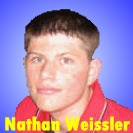Anne Frank’s Childhood Friend: Hannah Pick Goslar
by: Nathan Weissler

In November 2009, I interviewed Anne Frank’s close childhood
friend Mrs. Hannah Pick-Goslar by telephone from my home in Chevy Chase,
Maryland, USA. (Mrs. Pick-Goslar was at home in Jerusalem.) We discussed her
friendship with Anne Frank and other subjects. They were best friends from 1933
until 1942, when Anne went into hiding. As later mentioned, they had a reunion
in Bergen-Belsen concentration camp in 1945.
Hannah (“Hanneli”) Elizabeth Goslar was born on November 12, 1928, in Berlin,
Germany. She was the firstborn of Ruth Judith Klee and Hans Goslar. Ruth Goslar
later had a second daughter, Gabi, born in 1940. A third child was later born
who sadly died in childbirth along with Hannah‘s mother. Hans Goslar had a high
position in the pre-Nazi German government.
The Goslars were committed and observant Jews. Indeed, in Germany Hans Goslar
helped found the Mizrachi, a religious Zionist group. At one point, Hannah’s
father turned down a job opportunity in England because he would have had to
work on Shabbat.
When Adolf Hitler assumed the Chancellorship of Germany in 1933, the Goslars
immigrated to Amsterdam, Holland. The Goslars moved to the same apartment
complex as Anne Frank‘s family who immigrated at about the same time. Shortly
thereafter, Anne and Hannah became close friends. Indeed, the friendship also
extended to the Frank and Goslar families. For instance, the two families would
observe Shabbat together at the Goslars’ home on Friday evenings.
Thus, Hannah knew the Frank family well for many years.
In response to my question as to the personality of Anne’s older sister Margot,
she described Margot as ,“…a very silent, very intelligent, and good-looking
young lady….“ She also told me she consistently perceived Anne Frank’s father,
Otto Frank, as “…always optimistic” even during the Nazi occupation of the
Netherlands.
Sadly, the good times steadily decreased after the May 1940 Nazi invasion.
Discriminatory laws against Jews were quickly put into place. In July 1942, the
Frank family went into hiding. In the early morning hours of June 20, 1943,
Hannah, her father, sister Gabi and her grandparents were arrested by the
Gestapo at home. The Goslars were sent to Westerbork concentration camp in
Holland and ultimately to Bergen-Belsen in Germany. Hannah’s father and
grandparents sadly perished. Thus, Hannah and her sister Gabi were the sole
family survivors.
Also in Bergen-Belsen, Hannah had a reunion with her friend Anne Frank who was
in the camp with her older sister Margot. After a few meetings, Hannah succeeded
in throwing over some extra food for Anne over the barbed wire. Sadly, Anne and
Margot Frank died in Bergen-Belsen in the late winter of 1945. Hannah and her
sister were liberated in April 1945. In July 1945, Hannah went into a hospital
in Maastricht, Holland where she remained until September. Otto Frank visited
her in the hospital. During the visit, he told Hannah that Anne and Margot had
died. In September 1945, Hannah returned to Amsterdam.
In December 1945, Hannah, her sister and a friend went to Switzerland. At that
point, Hannah very much wanted to immigrate to what was then Palestine which she
did in 1947. She married Dr. Walter Pinchas Pick and had three children. Mrs.
Pick-Goslar has spoken widely throughout the years about her experiences. She
has also told her story to author Alison Leslie Gold who recorded it in the book
Memories of Anne Frank: Reflections of a Childhood Friend. Mrs. Pick-Goslar also
tells her story in a chapter in The Last Seven Months of Anne Frank edited by
Willy Lindwer, himself the son of Holocaust survivors. Hannah Pick Goslar lives
in Jerusalem today.
Speaking about Anne Frank’s recent eightieth birthday (June 12, 2009), Mrs.
Pick-Goslar told me that she was in Berlin on that day speaking to school
groups. “Some…schools made remembrance of her,” she said, “and I had to speak
there. So on her birthday I was in Germany.”
Finally, we should all understand a quote from Holocaust survivor Elie Wiesel,
“The opposite of love is not hate, it’s indifference…..And the opposite of life
is not death, it’s indifference.”